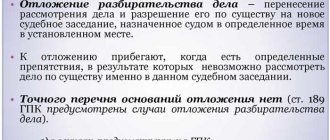In order to establish the elements of an administrative offense, proceedings are carried out in cases of administrative offenses.
Main tasks
proceedings in cases of administrative offenses are a comprehensive, complete, objective and timely clarification of the circumstances of each case, its resolution in accordance with the law, ensuring the execution of the ruling, as well as identifying the causes and conditions that contributed to the commission of administrative offenses.
Participants
proceedings in cases of administrative offenses are: the person against whom the proceedings are being conducted, also the participants may be the victim, legal representatives of an individual, legal representatives of a legal entity, defense lawyer and representative, witness, attesting witness, specialist, expert, translator, prosecutor.
A person against whom proceedings are being conducted for an administrative offense has the right to familiarize himself with all the materials of the case, give explanations, present evidence, file petitions and challenges, use legal assistance from a defense attorney, etc.
In order to suppress an administrative offense, establish the identity of the offender, draw up a protocol on an administrative offense if it is impossible to draw it up at the place where the administrative offense was detected, ensure timely and correct consideration of the case and execution of the decision adopted in the case, measures to ensure production
in cases of administrative offenses. Such measures include: delivery; administrative detention; personal search, search of things, search of a vehicle in the possession of an individual; inspection of premises, territories, things and documents located there; seizure of things and documents; suspension from driving; medical examination for intoxication; detention of a vehicle, prohibition of its operation; seizure of goods, vehicles and other things; drive unit.
All proceedings in cases of administrative offenses can be divided into several stages
.
The first stage is the initiation of a case
.
The main procedural document at this stage is the protocol
on an administrative offense. It is drawn up in a certain form and includes the relevant details (Article 28.2 of the Code of Administrative Offenses of the Russian Federation). The Code provides a list of officials who have the right to draw up protocols on administrative offenses, for example, officials of internal affairs bodies. In certain cases, when the amount of the fine is small - no more than one minimum wage, and in case of violation of customs rules - 10 minimum wages, a protocol may not be drawn up, and the fine is collected on the spot.
The next stage is the consideration of the case
. Cases of administrative offenses are considered by judges, as well as by a fairly large number of executive authorities within their competence. As a general rule, cases are considered at the place where the administrative offense was committed, although there are exceptions (Article 29.5 of the Code of Administrative Offenses of the Russian Federation).
A case of an administrative offense is considered within fifteen days from the date the judge or official competent to consider the case receives the protocol on the administrative offense. For certain categories of cases, there are reduced processing times. The procedure for considering the case is determined by Article 29.7 of the Code of Administrative Offenses of the Russian Federation. a decision may be made
on the imposition of an administrative penalty or on the termination of proceedings in a case of an administrative offense. The decision is announced immediately upon completion of the consideration of the case.
One of the stages of proceedings in cases of administrative offenses is the stage of review of resolutions and decisions
in cases of administrative offenses.
A decision made in a case of an administrative offense may be appealed. The complaint is filed within 10 days from the date of delivery or receipt of a copy of the decision
. Filing a complaint suspends the execution of the decision. The complaint is not subject to state duty. Thus, the decision made by the judge is appealed to a higher court; issued by a collegial executive body - to the district court at the location of the collegial body; issued by an official of an executive body - to a higher body, a higher official or to the district court at the place of consideration of the case.
A complaint against a decision in a case of an administrative offense is subject to consideration within 10 days from the date of its receipt. In some cases, this period is reduced (for example, a complaint against a decision on administrative arrest, bearing in mind the constitutional protection of the value of human freedom as such, is considered within 24 hours). It should be noted that the decision made on the complaint can also be appealed. It is important to emphasize that decisions in cases of administrative offenses and decisions on complaints against them can be appealed by the prosecutor.
The last stage of proceedings in cases of administrative offenses is the stage of execution of decisions in these cases
. The legislator establishes different execution procedures depending on the type of punishment. For example, an administrative fine must be paid by a person held administratively liable no later than thirty days from the date the decision to impose an administrative fine comes into force. If a minor does not have independent income, an administrative fine is collected from his parents or other legal representatives. In case of failure to pay the fine, the citizen may be held administratively liable in accordance with Part 1 of Article 20.25, which entails the imposition of an administrative fine in the amount of twice the amount of the unpaid administrative fine or administrative arrest for up to 15 days. In a number of cases, the legislator provides for the possibility of deferring and installment execution of the decision to impose an administrative penalty.
Rights of a person brought to administrative responsibility
1. A person against whom proceedings are being conducted for an administrative offense has the right to familiarize himself with all the materials of the case, give explanations, present evidence, file petitions and challenges, use the legal assistance of a defense attorney, as well as other procedural rights in accordance with this Code.
2. A case of an administrative offense is considered with the participation of a person against whom proceedings are being conducted for an administrative offense. In the absence of the specified person, the case may be considered only in the cases provided for in Part 3 of Article 28.6 of this Code, or if there is evidence of proper notification of the person about the place and time of the consideration of the case and if the person has not received a petition to postpone the consideration of the case or if such a petition is abandoned without satisfaction.
A person brought to any type of legal liability has the right to know what he is accused of, as well as to challenge the accusation, file petitions, and appeal against the actions of state and municipal bodies and officials.
A person brought to administrative responsibility is given the right to familiarize himself with all procedural documents. This right, of course, includes the opportunity for a participant in the proceedings to know what administrative offense he is accused of committing.
It follows from this that a person brought to administrative responsibility has the right to know not only the content of the article of the Special Part of the Code of Administrative Offenses specified in the protocol on the offense, but also the provisions of another normative act when the disposition of the norm is blanket. In our opinion, the procedure for familiarizing a given person with the case should be determined by law.
In cases where administrative detention or arrest is applied to a person, he should have the right to inform not only relatives, but also other persons about this. In addition, it is advisable for a person brought to administrative responsibility to be given the right to record the time of his detention and release in the protocol on administrative detention.
The ability of a person brought to administrative responsibility to personally give written or oral explanations, on the one hand, is an important procedural guarantee that allows for the fair imposition of an administrative penalty, and on the other hand, ensures the achievement of objective truth, since the arguments contained in the explanation serve as a source of information for the competent authority (official).
A person brought to administrative responsibility has the right to prove circumstances favorable to the defense. The participation of this subject of proceedings in the process of proof is expressed in the presentation of evidence and petitions.
General rules for imposing punishment for committing an administrative offense.
1. Administrative punishment for committing an administrative offense is imposed within the limits established by the law providing for liability for this administrative offense, in accordance with this Code.
2. When imposing an administrative penalty on an individual, the nature of the administrative offense committed by him, the identity of the perpetrator, his financial status, circumstances mitigating administrative responsibility, and circumstances aggravating administrative responsibility are taken into account.
3. When imposing an administrative penalty on a legal entity, the nature of the administrative offense committed by it, the property and financial position of the legal entity, circumstances mitigating administrative liability, and circumstances aggravating administrative liability are taken into account.
3.1. In the cases provided for in Part 3 of Article 28.6 of this Code, administrative punishment is imposed in the form of an administrative fine. In this case, the amount of the imposed administrative fine must be the smallest within the sanction of the applicable article or part of the article of the Special Part of this Code, and in cases where the sanction of the applied article or part of the article of the Special Part of this Code provides for administrative punishment in the form of deprivation of the right to drive vehicles or administrative arrest, administrative punishment is imposed in the form of an administrative fine in the largest amount provided for citizens by Part 1 of Article 3.5 of this Code.
4. The imposition of an administrative penalty does not relieve a person from fulfilling the obligation for non-fulfillment of which the administrative penalty was imposed.
5. No one can be held administratively liable twice for the same administrative offense.
Exercising the right to familiarize yourself with the case materials
Before drawing up a protocol on an accident and bringing him to administrative responsibility, a person has the right to familiarize himself with and make copies of all materials of the administrative case, which are evidence.
Such documents may include:
- · explanations of witnesses and victims;
- · expert opinions;
- · documents of state bodies and legal entities received at the request of the person in charge of the accident case
- · other procedural documents (ruling to initiate a case, protocol of inspection (inspection), etc.)
The familiarization time is not established by law. The official in whose proceedings the case is located is obliged to provide materials for review for a time sufficient for review.
Explanation of the person held accountable
Obtaining explanations from the person held accountable is a mandatory condition in the proceedings regarding an accident.
The procedure for conducting a survey of a person brought to administrative responsibility is established by Art. 26.3 Code of Administrative Offenses of the Russian Federation.
Explanations of a person against whom proceedings are being conducted for an administrative offense constitute information relevant to the case and communicated orally or in writing.
Explanations may include:
- in the protocol on an administrative offense,
- in the protocol on the application of measures to ensure proceedings in a case of an administrative offense;
- in the protocol of consideration of the case of an administrative offense,
- in a separate document.
As a rule, the explanation contains information about the circumstances of the offense committed and reflects the degree of guilt of the person.
When receiving explanations, a person has the right to the assistance of a defense lawyer. An important right to receive explanations is established by Art. 51 of the Constitution of the Russian Federation.
The constitutional right of a person established by Article 51 of the Constitution of the Russian Federation. No one is obliged to testify against himself, his spouse and close relatives.





